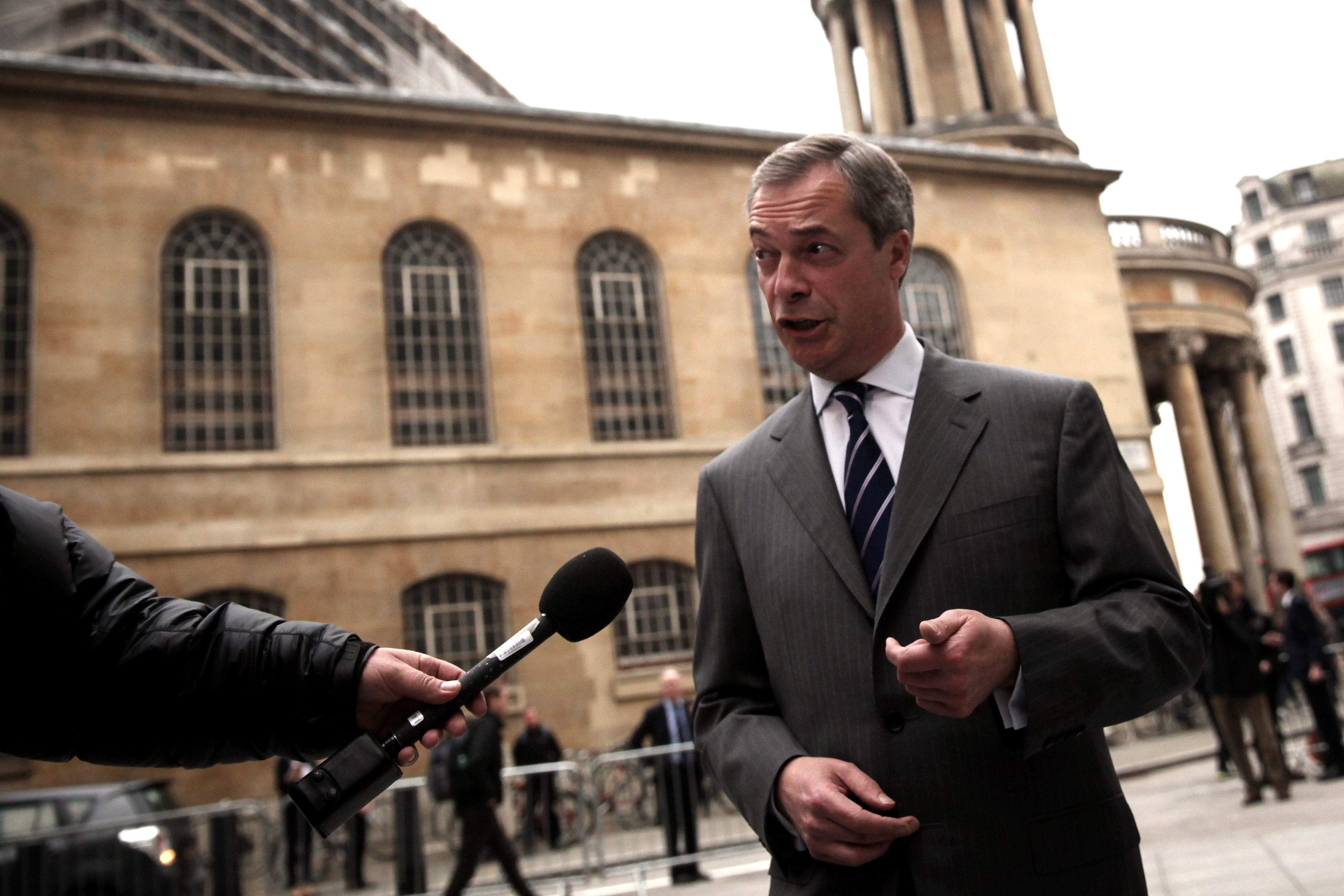How Nigel Farage beat Nick Clegg in the big Europe debate
Anti-EU leader triumphed by channelling popular outrage at political elite, experts say

A free daily email with the biggest news stories of the day – and the best features from TheWeek.com
You are now subscribed
Your newsletter sign-up was successful
UKIP leader Nigel Farage emerged victorious from the second television debate on Europe, with snap polls in the wake of his clash with Nick Clegg showing that more than two thirds of viewers thought he put in the better performance.
The Guardian/ICM survey gave him 69 per cent and he managed 68 per cent in The Sun's Yougov poll. It amounts to another huge victory for Farage and his anti-European agenda over his rival, Deputy Prime Minister Nick Clegg, who argued Britain should stay with the EU, and described Farage as a "dangerous" man who was "conning" the British people.
In the debate's aftermath, commentators weighed in to offer explanations for the Ukip leader's "landslide" victory.
The Week
Escape your echo chamber. Get the facts behind the news, plus analysis from multiple perspectives.

Sign up for The Week's Free Newsletters
From our morning news briefing to a weekly Good News Newsletter, get the best of The Week delivered directly to your inbox.
From our morning news briefing to a weekly Good News Newsletter, get the best of The Week delivered directly to your inbox.
Farage is at his best when he channels popular outrage at the political establishment, says politics lecturer Robert Ford of The Conversation: "This was smart politics by Farage, whose strongest support comes from voters who are deeply unhappy with the state of British politics and hostile to all the mainstream parties and their leaders."
He has painted Clegg as just another representative of an "out-of-touch and unresponsive" political class. "The audience loved it," Ford says. "And – judging by the polls – so did the folks back home."
As for Clegg, he was at his strongest at the start of the debate, says the Daily Mail's Quentin Letts, when he addressed Farage's admiration for Russian president Vladimir Putin. Clegg claimed that Farage was "so consumed with loathing" for Brussels that he was prepared to support a Russian leader who was allowing Syrians to be murdered in terrible numbers. That attack caught Farage by surprise, Letts says, and made him turn "a rather peculiar colour, almost his party's purple".
Still, Farage regathered himself as the debate went on and landed some blows of his own. The Ukip leader depicted Europe as a conspiracy between politicians and capitalists, creating pools of under-educated, cheap labour, geared entirely towards providing "cheaper chauffeurs and cheaper gardeners for the rich".
A free daily email with the biggest news stories of the day – and the best features from TheWeek.com
Ann Treneman, in her sketch for The Times, says Farage won the debate by appealing to people who wanted to reclaim their country. "He was for the little guy, the worker, the people who weren't Nick."
The strangest thing about the debate, Treneman observes, was how the two men's styles merged. "Nick was shoutier, Nigel was calmer (which isn't saying much). But for two men with diametrically opposing views, they did seem awfully alike."
The Independent's Donald Macintyre claims Farage "remains in many respects a dangerously logic-free zone" whose arguments simply do not stack up. "It's a bit rich, from a party which has been boasting about swallowing up BNP members, to express high-minded fears about 'worrying political extremism' in Europe," Macintyre says.
But Clegg's vision of the future of the EU was "fairly lame". If they are to rally anyone to their cause "the pro-Europeans are going to have to do better than this," Macintyre concludes.